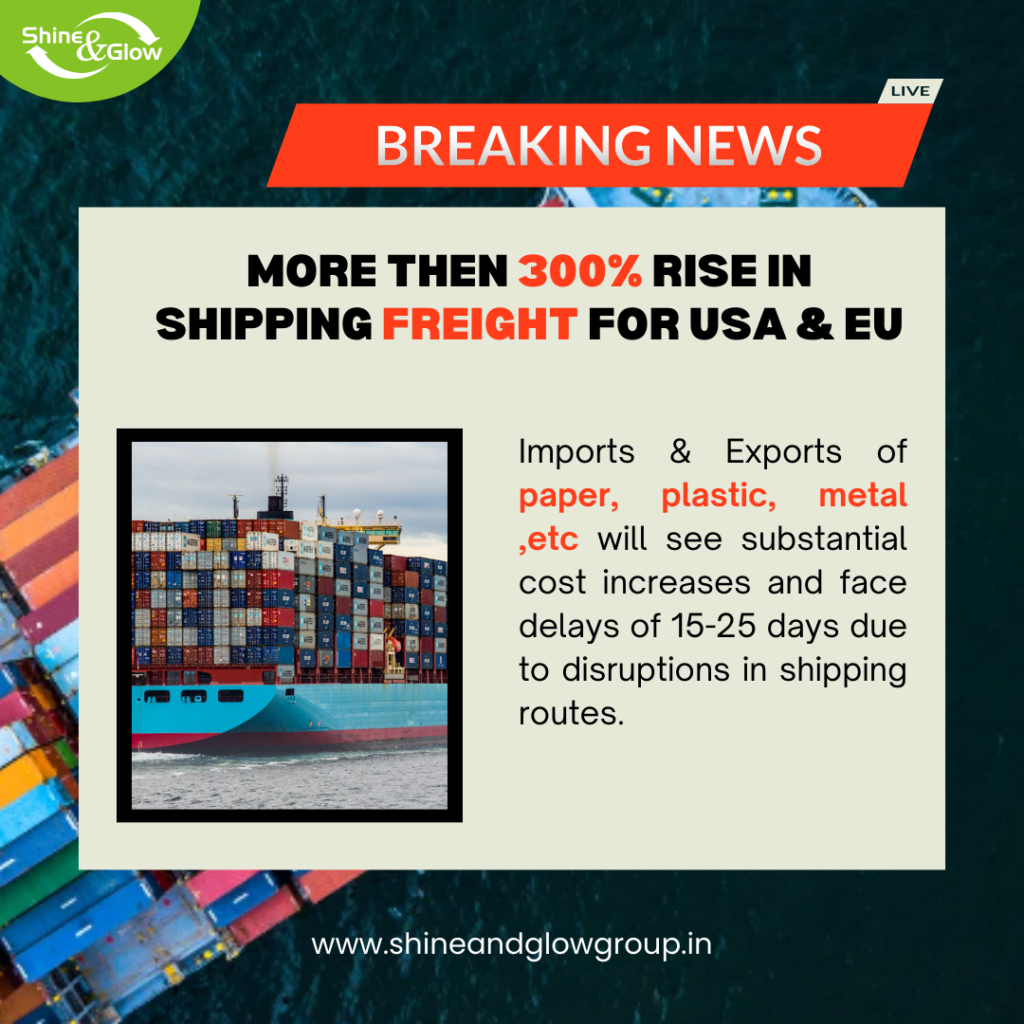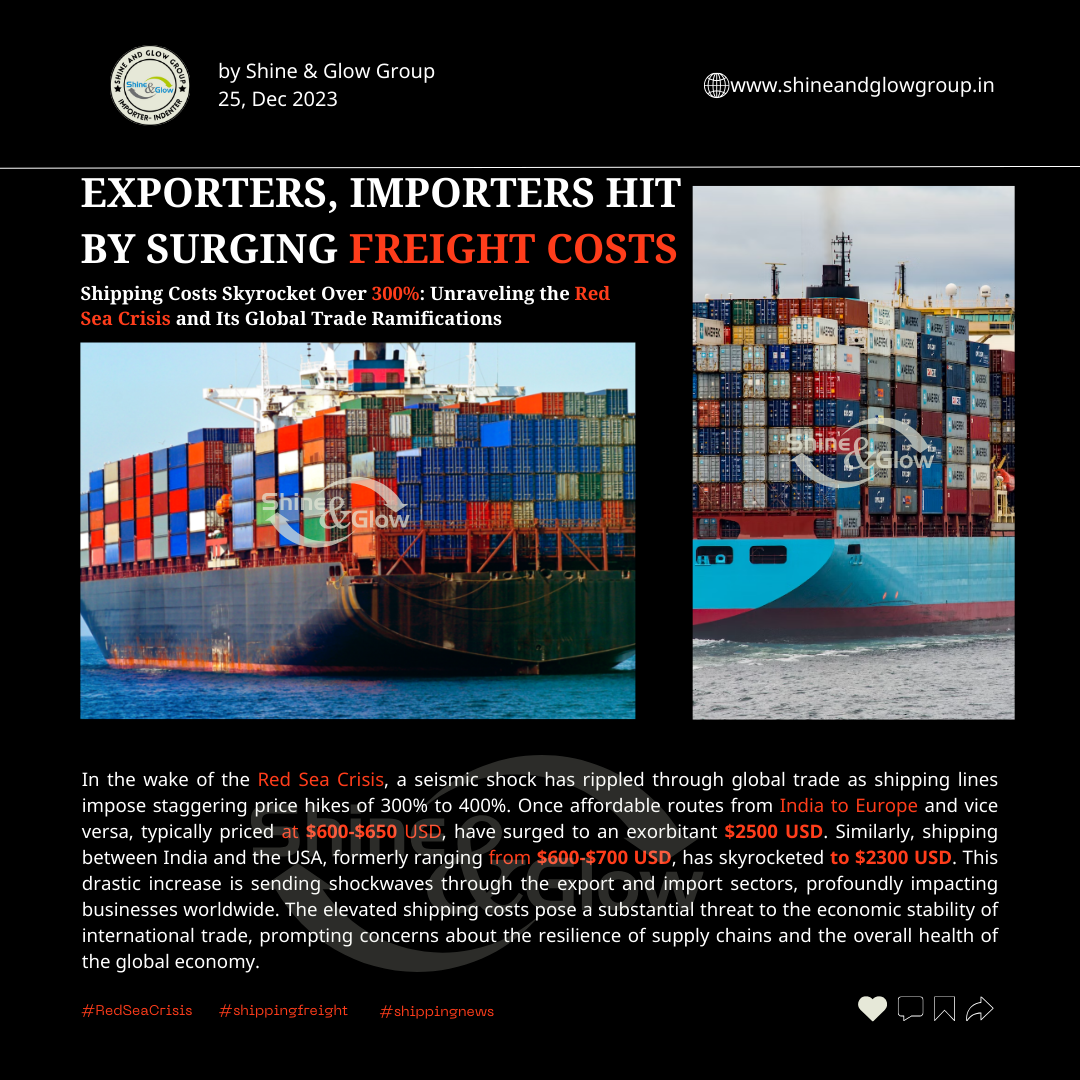Imports & Exports Face Significant Cost Increases and Delays Due to Disruptions in Shipping Routes

The global shipping industry is experiencing a seismic shift as freight rates for the USA and EU are set to skyrocket by more than 100%. The ramifications are far-reaching, impacting the imports and exports of crucial goods such as paper, plastic, metal, and more. The disruption is expected to lead to substantial cost increases and delays ranging from 15 to 25 days.

Freight Rates Could Surge 300% if Trouble Along Red Sea Route Continues
Amidst this upheaval, a critical concern arises from the ongoing security issues along the Red Sea trade route. Freight rates for Indian shipments bound for Europe and Africa may surge up to 300% if the current challenges persist. The Bab-el-Mandeb Strait, linking the Mediterranean Sea to the Arabian Sea via the Red Sea and the Suez Canal, plays a pivotal role in 30% of global container traffic. The disruption, exacerbated by security concerns, is alarming, especially for India, which heavily relies on this route for trade with West Asia, Africa, and Europe.
Shipping Lines Avoid Suez Canal as Red Sea Attacks Continue
Major shipping lines, including MSC and Hapag-Lloyd, are strategically avoiding transiting the Suez Canal due to escalating Houthi-led attacks on cargo ships. CMA CGM and Maersk Line have instructed vessels to pause transit until further notice. Evergreen and OOCL are temporarily suspending shipping to and from Israel.
The ripple effects of this strategic adjustment are hitting shippers hard, with fewer options for quick transit times. As the Panama Canal also faces delays due to drought, the risks are translating into higher costs for shippers in terms of rates, fees, and time.
Changing Routes Lead to Buildup of Ships, Higher Costs
The altered routes are causing a buildup of ships around the Suez Canal, with carriers planning to avoid or halt operations in the Red Sea. As of December 16, approximately 40 vessels were near the strait, and over 100 vessels were in the area. Westbound containers are now compelled to circumnavigate Africa, adding 7-14 days of transit time. Rerouting vessels east, though potentially faster than Africa for lanes to the East Coast of the United States, comes with its own set of challenges.
The Suez Canal Authority acknowledged that 55 ships had been rerouted since November 19 due to ongoing tensions in the Red Sea. Despite the challenges, the authority emphasized that the byway remains the fastest route to transit from Asia to Europe.
In the face of rising attacks on commercial vessels, global leaders are expressing concerns about the safety of transit in the Red Sea. The White House is actively working to strengthen maritime forces in the region to counter the threat, underscoring the urgency of addressing the current challenges in international shipping.



